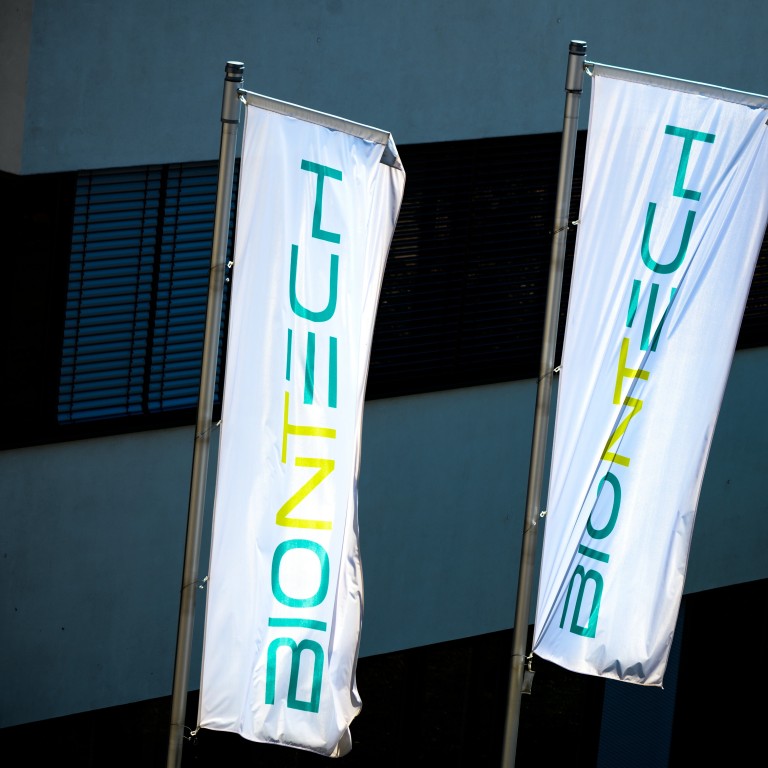
Vaccines’ impact on pandemic could come as early as April, says boss of Shanghai Fosun’s German partner BioNTech
- The world could start to see the effect of vaccinations on pandemic by the second quarter, says CEO of German drug maker BioNTech
- The company, which is based in Mainz, Germany, has partnered with Shanghai Fosun Pharmaceutical to bring its candidate to China
But collective efforts from vaccine developers, scientists and the media will be needed to inform vaccine sceptics to support higher take-up rates, said Ugur Sahin, co-founder and CEO of BioNTech. The company, which is based in Mainz, Germany, has partnered with Shanghai Fosun Pharmaceutical to bring its candidate to China.
“If we have positive clinical data that are considered to be sufficient by regulators, our vaccine could be made available under emergency use authorisation, at least for certain regions,” he told the South China Morning Post.
“2021 will be a year when we will learn how fast vaccines will be made available, [which will] require collaboration and close alignment among governments, companies and logistics providers … we might see the first effects of such vaccinations as soon as in the second quarter.”
BioNTech has partnered with the US pharmaceutical giant Pfizer to develop a vaccine for international markets outside China. They are conducting a late-stage global clinical trial with around 38,000 participants in over 120 centres.
Early data from various trials of the candidate have been submitted to American, European and Canadian regulators, and more will be submitted in coming weeks.
The first efficacy data “read-out” from the BioNTech-Pfizer trial could be available later this month, if the vaccine’s benefits can be demonstrated objectively.
Data on the first 32 participants who have been infected by the virus will be studied in the first read-out. If 26 or more of them belong to the control group, with six or less who actually received the vaccine, it would be the first sign of efficacy with statistical significance.
“If the first evaluation does not indicate statistical significance, we will wait a couple of weeks until 62 participants have a proven infection, and then repeat the analysis,” said Sahin, a Turkish-born German oncology and immunology professor who has co-founded two biotech firms since 2002.
mRNA vaccines work by introducing a molecule coded for a disease-specific protein, which can “coach” the body’s immune system to produce antibodies and generate immune responses against the virus.
BioNTech plans to follow up on the participants for two years, and collect data on safety-related events, infections and their severity.
To tackle resistance from vaccine sceptics, Sahin said developers will need to be fully transparent about the potential side effects of their candidates.
“We need to provide updated information about long-term protection data and safety observations in vaccinated subjects,” he said.
Sahin would not project a product launch time frame for BioNTech’s candidate in China if it gets marketing approval elsewhere, saying it depends on the Chinese government’s vaccination strategy and regulators’ approval.
“We shouldn’t forget that the outbreak is under control in China,” he said.
Fosun Pharma agreed in March to buy US$50 million worth of BioNTech shares and pay up to US$135 million towards the vaccine’s development. BioNTech’s share price has tripled since then.

